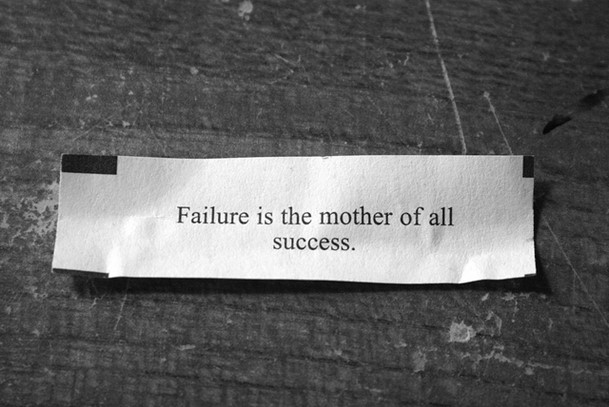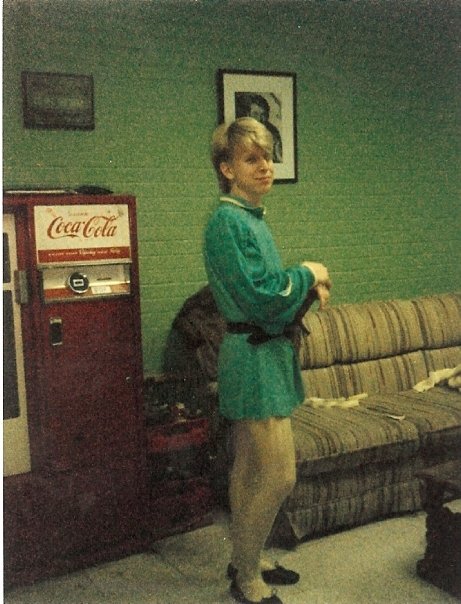 There’s been some great discussion in the #SQLFamily after Brent Ozar published a recent blog post: I Failed 13 College Courses. Lots of comments on Facebook about it, and other people soon came forward with their own brief tales of academic failure (and subsequent successes). I was particularly touched by Mike Walsh’s video (What Advice Should I Share on Career Day?), where he talked about dropping out of high school. Most of the conversations were about the struggles in academia, but there was real underlying thread: You can succeed and be happy after facing failure.
There’s been some great discussion in the #SQLFamily after Brent Ozar published a recent blog post: I Failed 13 College Courses. Lots of comments on Facebook about it, and other people soon came forward with their own brief tales of academic failure (and subsequent successes). I was particularly touched by Mike Walsh’s video (What Advice Should I Share on Career Day?), where he talked about dropping out of high school. Most of the conversations were about the struggles in academia, but there was real underlying thread: You can succeed and be happy after facing failure.
I’m friends with a lot of smart, successful people, and for those of us that are engaged in information industry, failing at an intellectual exercise (like college or high school) can be perceived as a mark of shame. I think what Brent, Mike, and others are showing is that recovering from failure is not only possible, but normal. We all fail at something, and that often puts on a new path to figuring out something else. Failure teaches us more than success.
My Story…
(Note: I just realized that my last blog post touched on this story briefly. Must be on my mind a lot lately.)
I didn’t fail in high school (WMHS, 1989).
I didn’t fail during my Bachelor’s degree (ULM, 1993 – B.A, RadioTVFilm Production).
I didn’t fail during my first Master’s degree (ULM, 1995 – M.A, Communication).
I didn’t fail on my coursework for my doctoral degree. (UGA, PhD coursework completed in 1999).
Nope. I waited until I was 28 years old (with a wife and two kids depending on me) to fail at my first academic exercise. I bombed my doctoral comprehensive exams not once, but twice over a 6 month period. In April of 2000, I was waiting outside my major advisor’s office to discuss my options for a third attempt. I waited for two hours, brooding over the shape of my life at the moment. She never came, so I walked out the door and didn’t go back (stopping at a bookstore on the way home to purchase two books on SQL). I didn’t hear from her until a few years ago when she friended me on Facebook, and we’ve never really discussed it. I’m happy, and she’s moved on to greater successes as well.
As an aside to this story, I had been working at the American Cancer Society while going to school; my official title on most publications was Research Assistant, but I was the shadow DBA for the Behavioral Research Center. I had been working with Microsoft Access to manage contact information for cancer registries as well as using SPSS with SQL to analyze data. I parlayed that interest in data management into a new job in August of 2000; I had decided that I wasn’t cut out for anything academic, and I wanted to move into IT full time.
I did go back in 2001 to finish a second Master’s degree in Education (UGA, 2002 – M.Ed. Instructional Technology). Yes, I have three college degrees, and none of them are in information Technology.
What I Learned…
Lots of lessons I picked up out of this.
First, I learned that the fear of failure often motivates me to pick the easier path. Looking back over my academic career, I’ve always been smart enough to know what my limitations are, and lazy enough to not challenge them. I got a degree in Radio Production, not just because I enjoyed the theatrical end musical elements but also because I knew I didn’t have to take harder courses (like Chemistry, Physics or Calculus; all of I which I had managed to avoid in High School). I used to think it was working smarter, not harder; in hindsight, I just didn’t want to fail.
Second, a fear of failure often blinds me from looking at the bigger picture. When I’m scared that something is going off the rails, my instinct is to drive forward at full speed and force it to succeed. Over time, I’ve learned to be sensitive to those warning signs, and try to put the brakes on and redirect. At several points in my graduate career, I knew that I was in the wrong field. But I had a job in academic research, and I had never failed before, so I was going to see this through and will it to be. That obviously didn’t work.
Third, fail early, because failing late in the game is expensive. I racked up over $120,000 in student loans in my doctoral program; if I had recognized early on that I wasn’t going to be happy, I could have avoided that. If I had challenged myself earlier with smaller risks, I might have predicted that academia wasn’t for me. Hindsight is amazingly clear; in the thick of it, however, I’ve learned that it’s best to take small risks when possible, and fail often. Failing at something gives you two choices: you challenge yourself to try something different and succeed in the future, or you curl up in a ball and “accept your limitations”. It’s easier to bounce back when the consequences of the failure are small.
Summary
I’m no guru; I’m just a guy trying to figure it all out just like you. I’ve gone on to have other epic failures, as well as some incredible successes. I will say that my own personal journey has resonated with my perspectives on software and service development recently. Below are some great reads about failure.








